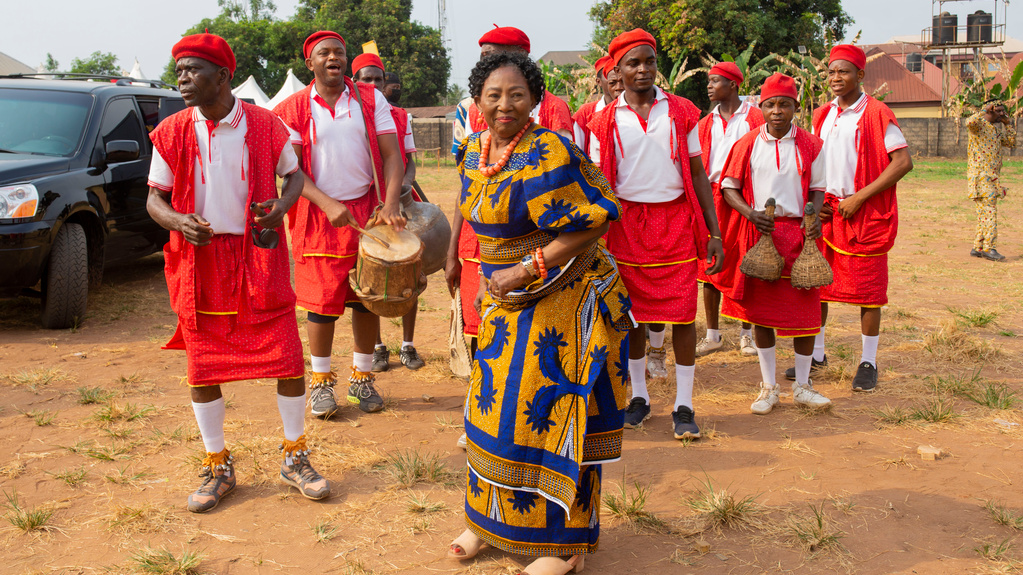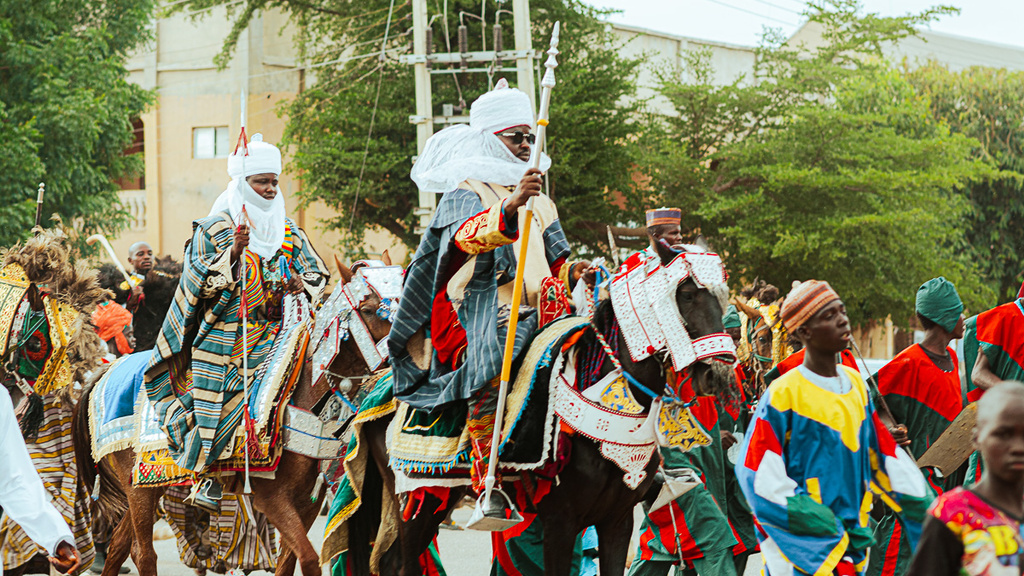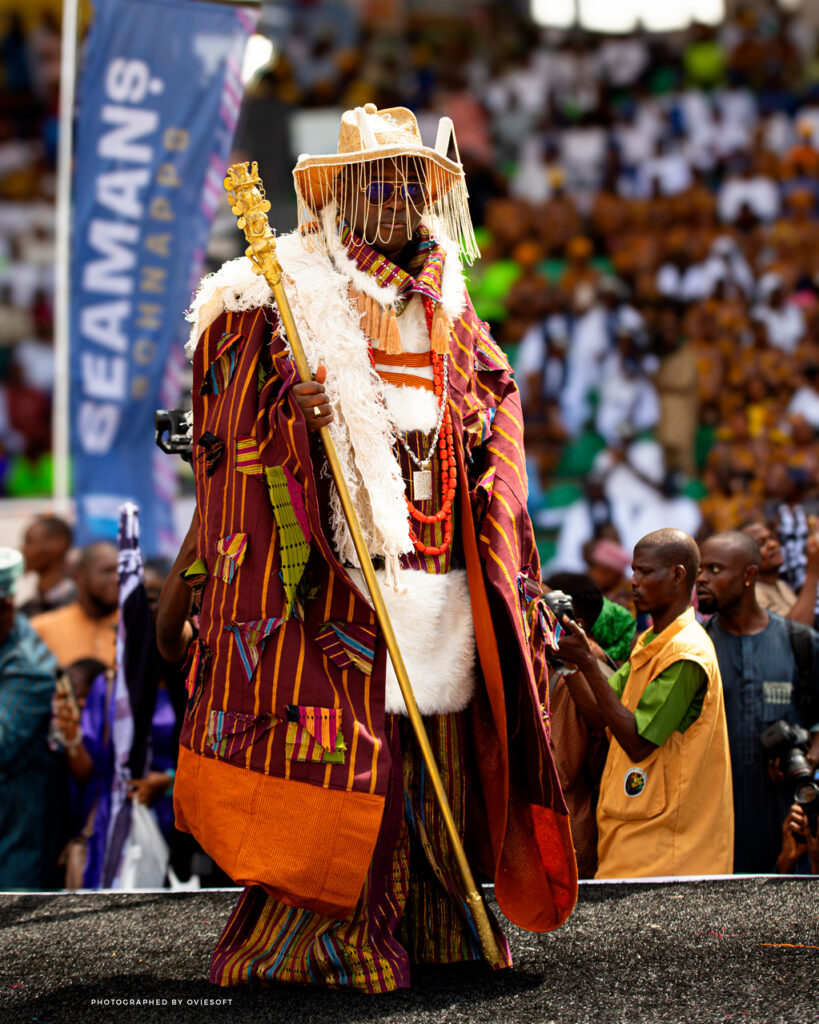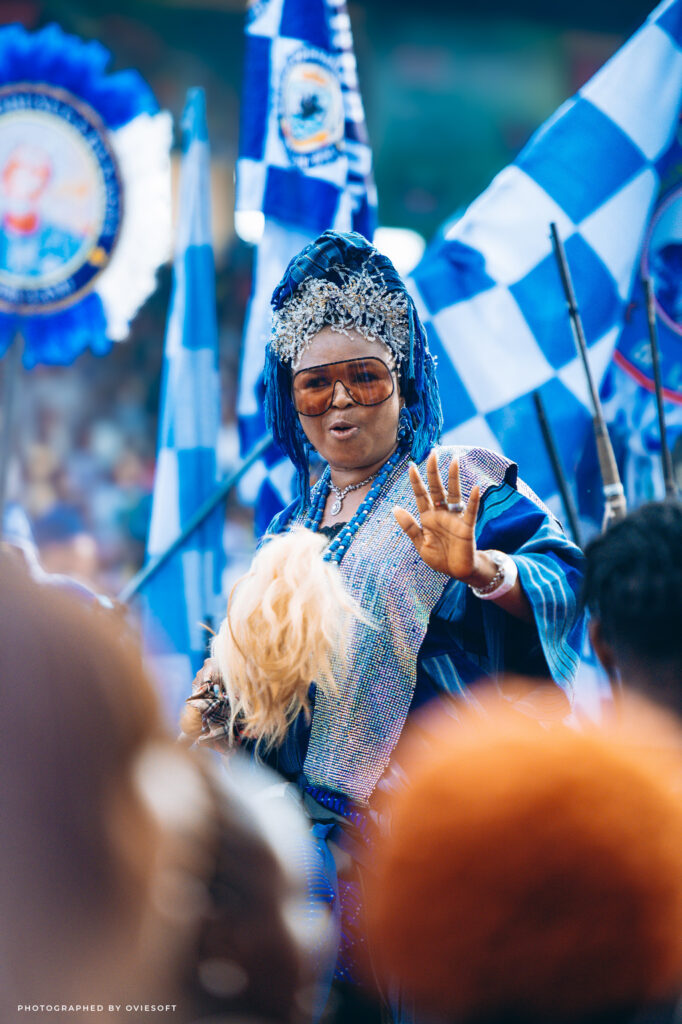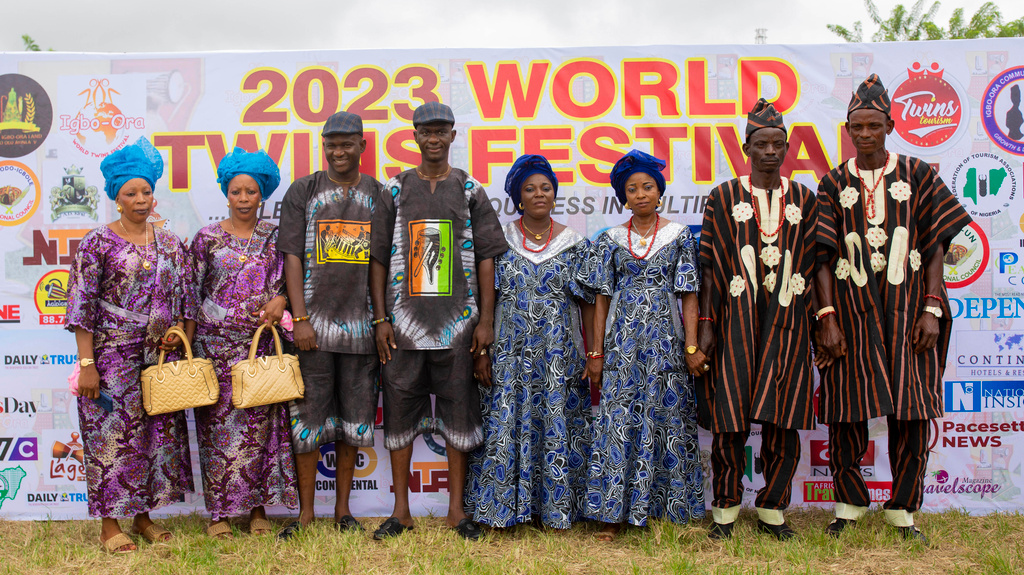Emmanuel Solate reflects on how his country’s vibrant festivals reinvent cultural citizenship.
A few months ago, the streets of Abeokuta pulsed with history and high fashion. Over a thousand garments: Adire, Aso Oke, Aran, and Agbada, rippling like waves, turned the city into a stage. Dancers, drummers, and dignitaries converged for the 38th Lisabi Festival, now rebranded as Ègbáliganza. More than a celebration, it was a cultural broadcast. A visual symphony. A reassertion of Egba identity, through story, fabric, and sound.
Before he appeared on Netflix, Lisabi, the warrior who led the 18th-century Egba resistance against Oyo’s oppressive tax regime, was already immortalised in annual April rituals. But in 2025, the festival took on new dimensions. Themed “The Walkway of Kings,” it blended a commemorative procession with an Adire-powered fashion week, a tech summit, and a tribute to Yoruba resistance. Actor Lateef Adedimeji, who portrayed Lisabi on screen, was in attendance, further collapsing the boundary between folklore and global media.
Here, fashion and folklore collide to build a cultural economy. And in the chants of “Egba, Omo Lisabi,” a slogan becomes a bloodline, one that reclaims its place in a national narrative that too often favours Lagos over local legacy.
Across Nigeria today, traditional festivals are no longer just ritualistic events tucked away in dusty towns. They’ve become living archives, dynamic, digital, and defiantly expressive. Carried on Instagram reels, remixing oral traditions with drone footage, they are spaces where memory is not just preserved but performed. And increasingly, they are being wielded intentionally by a new generation committed to remembering, remixing, and reclaiming their cultural identities.
In Ilorin, the Durbar Festival is no longer merely a parade of cavalry and colonial echoes. Rooted in Fulani martial traditions, the 2024 and 2025 editions offered a hybrid experience: over 500 horsemen cloaked in gold-threaded robes thundered through city streets while the Emir received homage in a scene as cinematic as it was symbolic. Beyond pageantry, the Durbar has evolved into a cultural boot camp, a seven-day calendar featuring health outreach, exhibitions, and youth-led heritage initiatives. The horse is still present, but now it gallops across two timelines: one rooted in imperial pasts, another riding toward digital relevance.
If Coachella had a Yoruba cousin, its name would be Ojude Oba.
Held annually in Ijebu Ode, this festival transforms post-Eid homage into a dazzling convergence of tradition, entrepreneurship, and fashion. Age-grade societies (Regberegbes) don Aso Oke and damask, parading through the city in fierce competition, not just for best costume, but for thematic relevance. Recent editions featured performances engaging with climate justice, fintech innovation, and diasporic identity, all against a backdrop of drumming, horseback pageantry, and coordinated Gele couture.
Ojude Oba is no longer just a festival—it’s a business model. A site where soft power meets generational reinvention. It’s TED Talk meets talking drum, wrapped in Dolce & Gabbana sunglasses and ancestral confidence.
In Obosi, Anambra State, age becomes a ritual. The Ito Ogbo Festival, a thunderous celebration of octogenarians, places elders not at the margins of society but at its cultural core. Participants aged 80–89 are inducted into an elite age-grade circle through title bestowals, praise parades, and ritual pageantry. In a society where the elderly are often sidelined, this is a profound reversal—a cultural clapback to ageism.
The 2024 edition doubled as a civic statement. Beyond symbolic roles, elders in Obosi are exempt from certain financial obligations, an honour rooted in Igbo ethics but now documented, hashtagged, and shared globally. Ito Ogbo reminds us that culture doesn’t retire. It recurs and revises.
Further west, in Igbo Ora, biology becomes mythology. Known as the “twin capital of the world,” this Yoruba town celebrates its annual Twins Festival, a surreal convergence of coordinated outfits, Orisha worship, and biometric fascination. Here, twins are not just siblings but spiritual avatars.
Beyond the ceremony, the festival has evolved into a magnet for researchers, mystics, and influencers, who are curious about the town’s unusually high twin birthrate. It’s a local mythos with global legs. A cultural wonder exporting both story and science.
What ties these festivals together—Lisabi, Durbar, Ojude Oba, Ito Ogbo, Igbo Ora—is not just a preservation of heritage, but a reinvention of cultural citizenship. Nigerian festivals today are no longer passive rituals but active platforms. They double as media events, creative labs, political protests, and spiritual reunions.
They’re curated with intention. Powered by youth. Sponsored by tech. Streamed to the diaspora. They offer not just nostalgia, but navigation—helping a post-colonial, global-facing Nigeria define who it is, where it stands, and what kind of future it dares to create.
As we enter an age where identity is fluid and culture is currency, Nigeria’s festivals may be its most potent export yet. They are not merely echoes of the past. They are rehearsals for the future.

